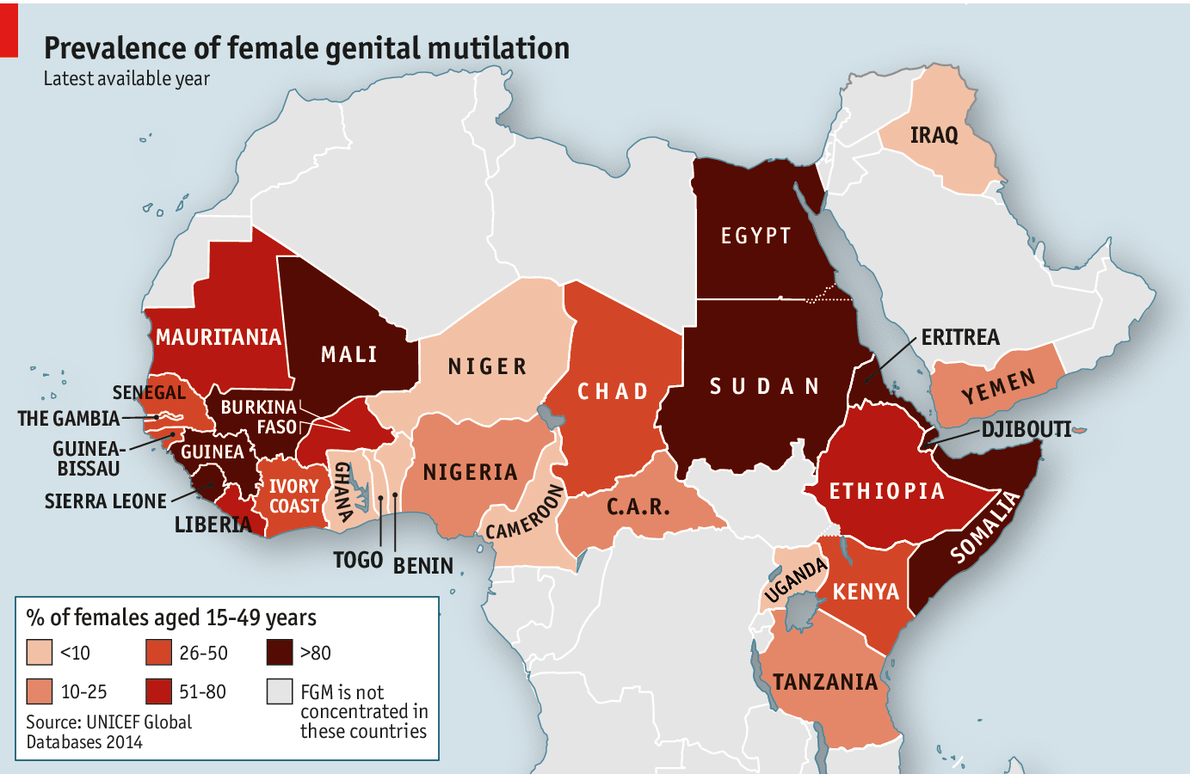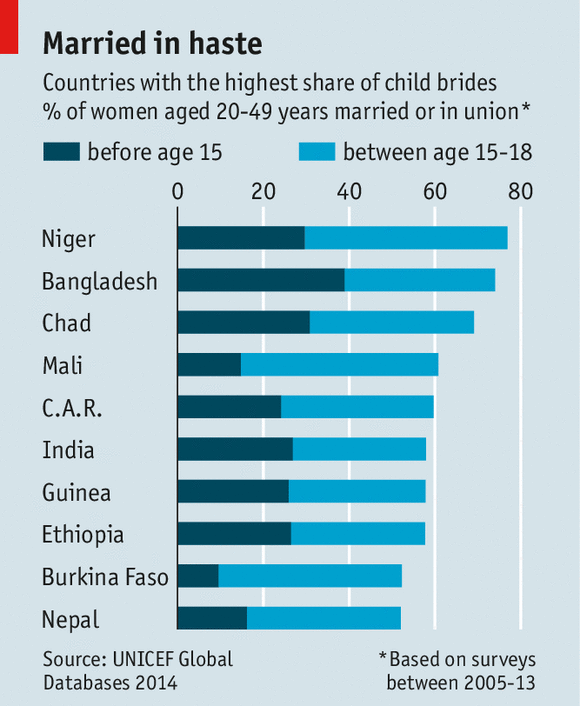Violence Against Women
Source: The Economist
FIRST the good news: according to a report published on July 22nd by UNICEF, the share of the world's girls who are subjected to female genital mutilation (FGM) is around a third lower today than it was three decades ago.
Now the tragedy: seven girls still have their genitals cut or mutilated per minute. And the rate at which the practice is declining is not enough to counter population growth. Unless the pace picks up, the number of victims will grow from 3.6m a year now to 4.1m in 2035.

At its worst, FGM involves cutting off the clitoris and labia and stitching the vagina almost closed. In the African countries where it is a traditional rite of passage, as many as nine girls in ten are subjected to the barbarous practice (see map), which causes excruciating pain and can lead to infection, infertility and sometimes death.
Child marriage, another custom that destroys girls' lives, is also common in Africa, and in parts of Asia too. The future life of a child bride is likely to be poor and socially isolated. Schooling will probably fall by the wayside. Early childbearing may destroy her health or kill her. UNICEF reports that more than 700m women alive today were married before turning 18—and 250m of those before turning 15.
In some countries most women aged between 20 and 49 were married when they were children (see chart). And though, like FGM, the tradition is slowly fading, high fertility where it is most common means absolute numbers are barely falling. Without further progress the number of former child brides will still be over 700m in 2050.
Many countries have passed laws against both practices. That is essential, but not sufficient. Both stem from deeply rooted social norms which can only be changed by educating parents about the harm they cause. Making foreign aid conditional on results gives governments an extra incentive not just to pass laws, but to enforce them. Police and women's activists in some countries have set up phone hotlines and safe houses for victims or girls at risk. Most important, says Babatunde Osotimehin, the head of the UN Population Fund, is to make sure that girls go to school and finish their studies.

